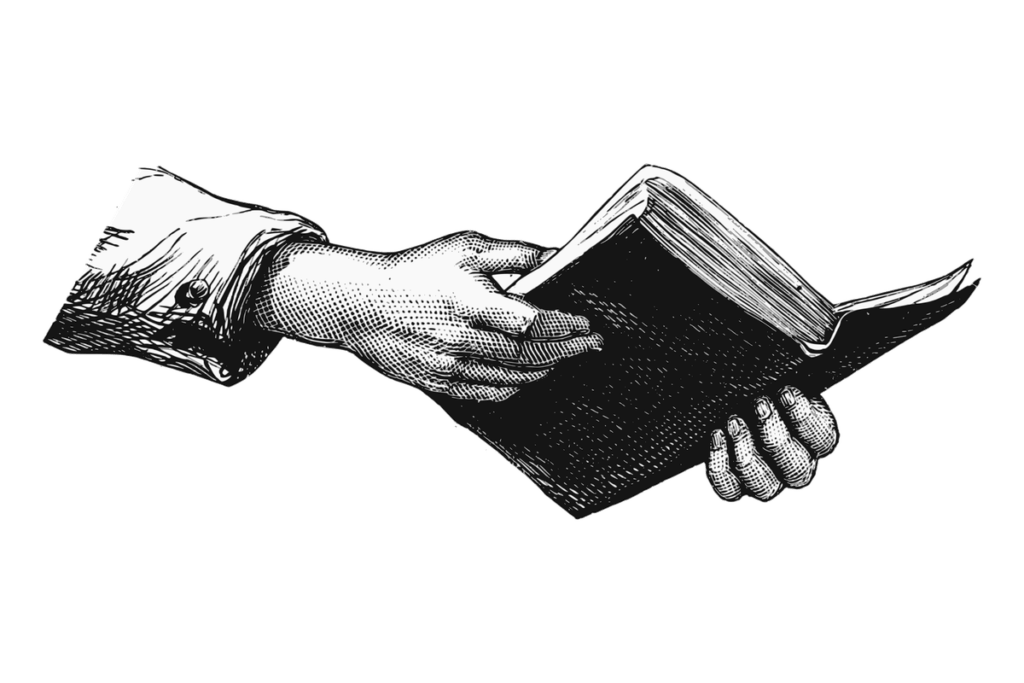Alex hit the snooze button for the third time before dragging herself out of bed. She rushed to get ready and bolted out the door with only enough time to grab a coffee on her commute.
Meanwhile, Sam’s alarm rang at 6am as usual. She took her time waking up and going through his morning routine. After making breakfast and packing his lunch, Sam left with plenty of time to spare.
At work, Alex was constantly playing catch up from her rushed start. She worked long hours to finish everything but was often stressed. Sam maintained a steady pace and took regular breaks to recharge.
On her lunch break, Alex usually ate at her desk while responding to emails. Sam met friends at the park to enjoy their lunch and get some fresh air.
While Alex often worked late to finish tasks, Sam had a solid cutoff time to leave the office. She believed in maintaining a good work-life balance.
On weekends, Alex slept in and squeezed errands into small windows of time. Sam woke early to enjoy leisurely mornings. She scheduled activities but left room for spontaneity.
Alex’s reactive habits left her feeling overwhelmed. Sam’s consistent routines allowed her to be more relaxed and productive. Their opposing daily rhythms led to very different experiences of work and life overall.
We are well aware of the benefits of cultivating positive habits and the drawbacks of indulging in negative ones, so how can we relate this to our approach to reading?

The Power Of A Reading Habit
Cultivating an unstoppable reading habit isn’t about checking off some boring checklist or feeling like you “should” read more. It’s about finding books that genuinely fascinate and inspire you, and making reading an integral part of your routine.
In today’s world of distractions and constant busyness, carving out time to read can seem impossible. But successful readers know something you don’t – that making space for books ends up enhancing your focus, reducing stress, and opening you up to new perspectives.
Rather than seeing reading as another chore, view it as an opportunity to continually evolve and grow on your own terms. By exposing yourself to diverse ideas and experiences, you gain a more well-rounded understanding of the world and your place in it.
This article will give you practical strategies to start prioritizing reading over phone scrolling and other time-wasting. We’ll look at setting goals aligned with your interests, curating a personalised list, and making reading enjoyable and fulfilling.
Most importantly, focus less on checking off titles and more on feeding your curiosity. Keep an open mind, follow your interests and over time reading will become a transformative daily ritual that leaves you feeling inspired by what you have yet to learn. Are you ready to level up your life? Let’s get started.
Why Make Reading A Habit?
Cultivating a reading habit is one of the most important yet underrated things you can do for yourself. In a world where we’re constantly bombarded with meaningless distractions and shallow content, reading provides an escape into ideas, knowledge and personal growth.
While most people see reading as a chore, those who have built an unstoppable reading habit know something they don’t – that reading makes you a more interesting, well-rounded and accomplished person. When you read, you actively exercise your mind and absorb the wisdom and experiences of countless others. You gain new perspectives, learn how to think critically and creatively solve problems. Reading is like supercharging your brain.
Building a reading habit also has immense stress-reducing and relaxation benefits. Unlike mindlessly scrolling social media feeds, getting lost in a great book transports you to a different world and allows you to fully detach from your daily worries. Numerous studies show that reading reduces stress levels, relaxes the mind and body, and can even help you sleep better.
Most importantly, reading expands your life potential. The more you read, the more you realize how little you know. Reading introduces you to new ideas and possibilities you may have never considered otherwise. It exposes you to different philosophies, models for living, and ways of thinking – all of which make you a more well-rounded, curious and ambitious person. In many ways, a reading habit is like leveling up your life.
Strategy 1: Setting Reading Goals
We all know to achieve anything it is a good idea to set goals. Most advice on setting goals is bad, it doesn’t need to be complicated.
Most goal-setting advice focuses too much on creating perfect plans rather than actually taking action. The key is keeping your goals simple, realistic and motivating.
There are two main types of reading goals to consider: volume and topic. Volume goals measure your reading in terms of time, number of pages or books. I strongly advise you read for a set amount of time. Books can be short or incredibly long, reading a set number of books per year is almost always a bad idea. Topic goals specify subjects, genres or authors you want to learn about.
Start small and specific. Something like “Read 30 minutes per day this week” is better than vague resolutions because it’s easy to track your progress. Mix up volume and topic goals to keep things interesting. And don’t beat yourself up over not meeting a goal occasionally – the point is to actually read, not just make lists.
Keep goals flexible enough that you look forward to achieving them, rather than view them as a chore. Reading is supposed to be enlightening and enjoyable. Focus on incremental progress through goals that get you going, not obligations that burn you out. With the right approach, goals can enhance your reading habit instead of restricting it.
Strategy 2: Create A Routine
Consistency is key for any habit, and a reading routine is no different. But like goals, don’t make it more complicated than it needs to be. All you really need is dedicating some regular time each day (or week) to pick up a book.
Start by being honest about your schedule. When do you normally have at least 30 minutes to spare? Morning, lunch, evening – wherever you can reliably carve out some time. Then just commit to opening your book in that window as often as possible, even if you’re not “in the mood.” Sticking to a schedule trains your brain.
As for location, choose a quiet place you associate with relaxation rather than distraction. Your room works for many, but others prefer the library or local coffee shop. Experiment until you find your personal sweet spot. Minimize interruptions by silencing devices or using a distraction-blocking app.
The key is making reading so accessible and routine that it becomes a zero-thought activity like brushing your teeth. So keep your setup simple, your expectations realistic and above all, don’t overthink the process. Just open the damn book already! A regular routine is the foundation for any habit to stick.
Strategy 3: Curating a Personalized Reading List
Curating your own personalized reading list isn’t about checking off books you feel like you “should” read. It’s about finding what genuinely interests you and fuels your curiosity.
Don’t get too hung up on genres or recommendations. The best books are often unexpected. As for interests, these will change over time, so don’t pigeonhole yourself. Experiment with different subjects by browsing summaries on the back cover or first pages – you never know what might hook you.
Try not to read book after book in the same genre, we all have favourites but a wider reading habit is more beneficial to overall knowledge.
Start broad with big categories like science, history, biographies, poetry etc. See what grabs you. Be willing to abandon books that don’t. That said, sometimes a book grows on you as you go, so stick with it if the subject matter excites your mind.
Talk to friends about what they’re reading without judgment. Discussing books with people who have read them is a surefire way to understand the book at a deeper level.
The goal of a reading list isn’t checking off titles but feeding your curiosity and keeping reading an enjoyable part of your routine. Stay open, follow your interests, and you’ll end up with a personalized list to inform and inspire you.
Strategy 4: Minimizing Distractions
Distractions are the enemy of active reading. Whether it’s your phone, TV or an overly noisy environment, anything that pulls you out of the narrative makes reading a chore.
The first step is finding your distraction-free reading zone, whether it’s a quiet corner, local library or coffee shop. Put down your phone, set it aside and keep it muted.
Once you’ve minimized external distractions, focus on your reading frame of mind. Ditch passive consumption – actively engage by questioning the author, taking notes and actively thinking about the points the writer has made. Test your recall of characters/topics and outline points to stay focused. Reading is about absorbing ideas, not just turning pages. Stay present and get in the habit of active reading.
Strategy 5: Making Reading Enjoyable
Finding the right balance between stimulating reads and light entertainment is key to making reading an enjoyable lifelong habit. We all need mentally engaging books that challenge and expand our horizons, but you will burn out if this is all you read. Don’t save all those light novels just for reading on holiday – sprinkle some fun books between “serious” texts for a relaxing way to decompress without sacrificing growth.
Conversely, don’t be afraid to dive into denser nonfiction, even just a chapter at a time alongside an easy novel (yes, read more than one book at a time).
This balances stimulation and relaxation so reading never feels like a chore. The goal isn’t checking off as many “important” books as possible, but crafting a mix that suits your mood. Keep things varied and you’ll always look forward to reading, whether you spend those moments learning or simply disengaging from the world.
Strategy 6: Tracking Progress and Celebrating Milestones
Tracking your progress is important for building momentum and sticking to your reading goals long-term. But don’t make it another chore – keep it simple.
A notebook works better than an app for quick logging without excessive setup. Just date it and jot down the title, author and your thoughts. Note any insights, questions or how it relates to your life. This helps you look back on your journey.
Reward yourself for meeting goals in a fun yet affordable way – a coffee, new bookmarks, or treat yourself to your favorite takeaway. Celebrate these wins to reinforce the positive habit.
Most importantly, reflect on how your perspectives have changed. What sticks with you 6 months later? How has your thinking evolved? Reading is about growth, so evaluate how it’s impacting you beyond just turning pages. These reflections will inspire you to keep fueling your curiosity.
Conclusion
Remember, it’s not about the quantity of books you read, but the quality of the experience and the impact it has on your life. Find books that captivate your interest, experiment with different formats, and curate a reading list that reflects you and the best literature the world has produced.
Celebrate your milestones along the way and reflect on the profound changes that reading brings to your perspective and understanding of the world. Embrace the joy of reading, the power of ideas, and the endless possibilities that lie within the pages of a book.
So, are you ready to embark on this remarkable adventure? Are you ready to unlock the secrets to cultivating an unstoppable reading habit? The choice is yours. Open the door to a world of knowledge, inspiration, and personal transformation.
